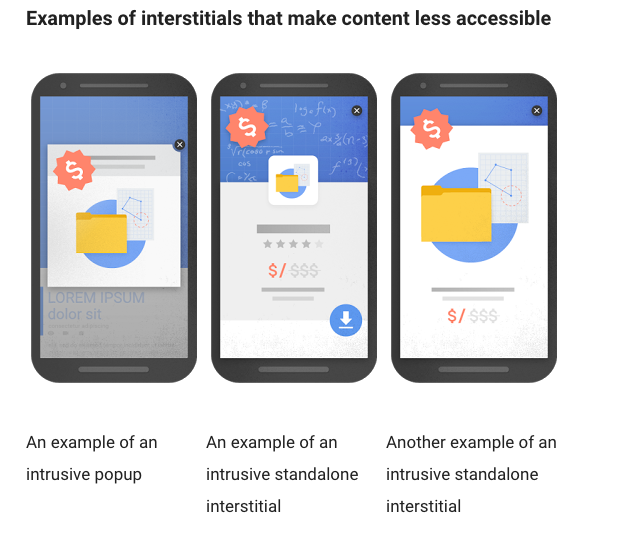Google Knows How Much You Hate Getting Giant Pop-Up Ads On Your Phone
It is one of the small but ubiquitous frustrations of the modern era: You tap an interesting-looking link on your phone, only to be greeted by some giant ad that takes up the whole screen and has some stupid tiny X mostly hidden, and in trying to close the ad you end up opening it and it’s annoying. If you are like most human phone-using people, you really hate that. Well, for stories you get to through search at least, Google’s got your back.
The internet giant’s latest attempt to refine your mobile experience, as Google announced today, targets those pop-ups, called interstitial ads.
Any page that shows “intrusive interstitials,” Google says, will be deprecated in the search results on mobile phones after this update goes through. Those are the ones that look like this:
Not all pop-ups are considered intrusive. Legally-mandated cookie notices or age-verification portals, for example, would not count against a site. Nor would banner ads that “use a reasonable amount of screen space” and are easily dismissed.
Google’s giving basically the entire rest of the internet time to change its ways, though; big honking interstitial ads won’t hurt a site’s search ranking until Jan. 10, 2017 — more than four months from now.
This is just the latest in a long series of tweaks Google has made to its mobile search algorithms in the name of making your phone-based internet experiences better. Earlier this year they began to actively promote sites that used Google’s AMP mobile-optimization tech.
But as time moves on, so do tools: Since 85% of the internet now qualifies as mobile-friendly, Google says, they’re going to retire the “mobile friendly” tag that they added to search results back in 2014. That said, the mobile-unfriendly sites will still rank lower on your phone-bases search results.
Helping users easily access content on mobile [Google official blog]
Want more consumer news? Visit our parent organization, Consumer Reports, for the latest on scams, recalls, and other consumer issues.


